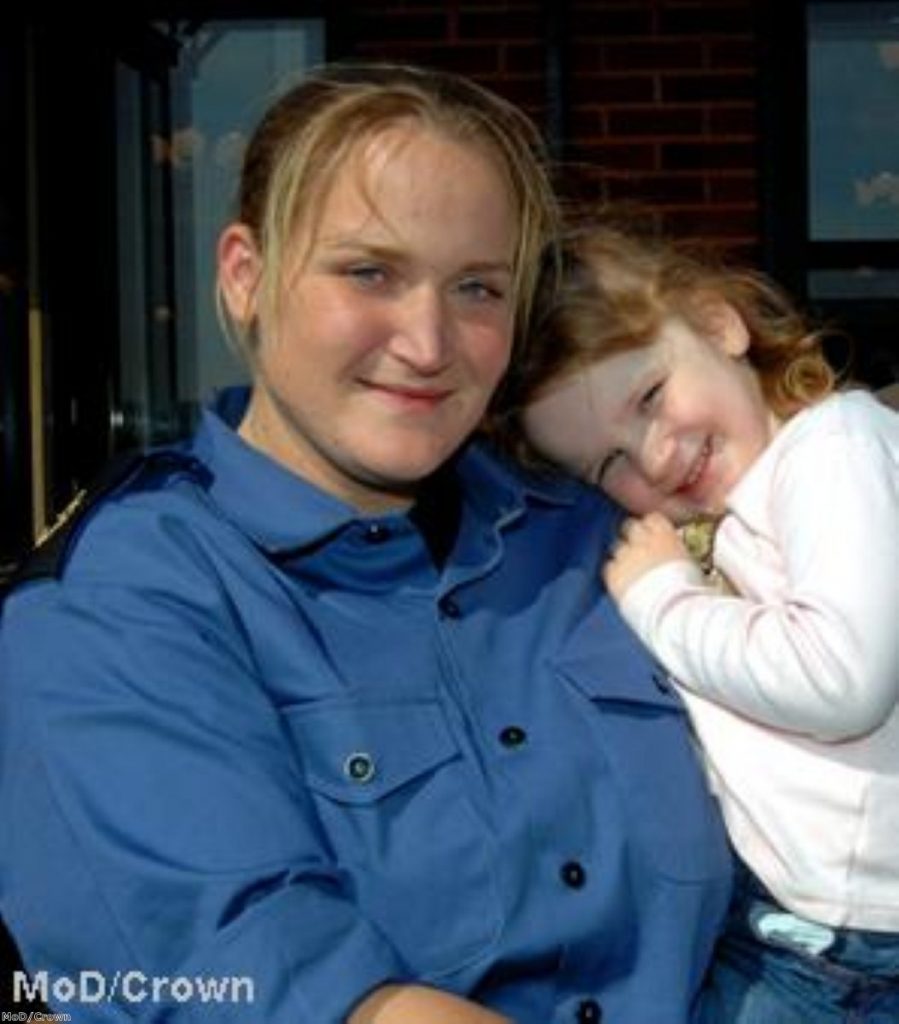Military bans private interviews
The Ministry of Defence (MoD) has announced a temporary ban on military personnel selling their stories to the media following the controversy over the 15 sailors released by Iran last week.
Defence secretary Des Browne said that until a review into press regulations was completed no personnel are “allowed to talk to the media about their experiences in return for payment”.
Some of the ‘exclusive’ stories of the Royal Navy personnel captured by Iran in the Gulf last month have today appeared in the British press.
Leading Seaman Faye Turney, the only woman among the 15 seized, has already spoken to the Sun newspaper and ITV1’s Tonight with Trevor Macdonald.


Citing the “exceptional” circumstances of the 15 sailors and the “modern media environment”, Mr Browne defended the decision to allow “these young people to tell their story precisely in order to stay close to them”.
But he admitted that it had been a “very tough call” and that the MoD had “not reached a satisfactory outcome” in its decision.
“I want to be sure those charged with these difficult decisions have clear guidance for the future.
“Until that time, no further service personnel will be allowed to talk to the media about their experiences in return for payment”.
Second Sea Lord Vice Admiral Adrian Johns revealed earlier today that the MoD was looking at the small print of its regulations concerning personnel talking to the press, as he believes the rules are outdated.
“The second permanent secretary in the MoD has now asked for a review of regulations because, quite frankly, they were probably written at a time when a fee meant a fairly modest fee for giving some information to a journalist or newspaper,” he told BBC Radio Four’s World at One.”
But defending the MoD’s stance on the 15 sailors, he added: “We thought it was very important indeed to let these people tell the story in their own words and through the media.
“And, far more important, we do this early and now while they have full advice from our own media facilitators.”
LS Turney told the Tonight programme she was given the option by her captors to admit on television that her crew had strayed into Iranian waters or face imprisonment on spy charges and never see her three-year-old daughter Molly again.
“When they wanted me to write what was written about the British and American troops I felt like a traitor to my own country,” she said.
“I was offered a hell of a lot of money for my story. I’ve not taken the biggest offer, I’ve gone down – because I wanted to speak to yourself and the Sun because I knew my point would be put across.
“I want everyone out there to know my story from my side, see what I went through.”
Opposition politicians and families of British soldiers killed in action have criticised the MoD’s decision to allow the sailors to speak to the media, but the respective officers of the eight sailors and seven marines have already said they have no intention of profiting from talking to the press.
Lieutenant Felix Carman said he was “not interested in making money out of this”, while Royal Marine Captain Chris Air said he was “not going to speak to the papers” at all.
In her interview with the Sun, LS Turney, 25, sheds light on the fact she was kept isolated from her colleagues for six days of their 13-day ordeal.
She also describes her initial fear of being raped and an incident where she thought the Iranians were measuring her for a coffin.
LS Turney explains that the reason why the 15 sailors were pictured smiling and seemingly relaxed on Iranian TV was that they had only recently been reunited with each other after spending days in isolation.
“We were only smiling in the TV pictures because we were relieved to see each other. We couldn’t help it,” she said.
“The Iranians knew this. That’s why they filmed us at that time.”
In a separate interview with the Daily Mirror meanwhile, Able Seaman Arthur Batchelor, 20, described his experience as “beyond terrifying”.
“They seemed to take particular pleasure in mocking me for being young,” he said.
“They tried to persuade me that I was responsible for all that was happening to us because I was the boat’s navigator – but I knew we had been inside Iraqi waters when we were seized.
“They kept asking me if I supported the war in Iraq and I kept answering that I was just a serviceman doing my job,” the 20-year-old continued.
The 15 sailors arrived back in the UK last Thursday after being released by Iranian president Mahmoud Ahmadinejad, who had insisted that the group had been in Iranian waters when they were seized on March 23rd – a claim refuted by the British government.
In the diplomatic row which ensued, images of the imprisoned military personnel were shown on Iranian television and beamed across the world as officials in London and Tehran sought to find an end to the stand-off.












